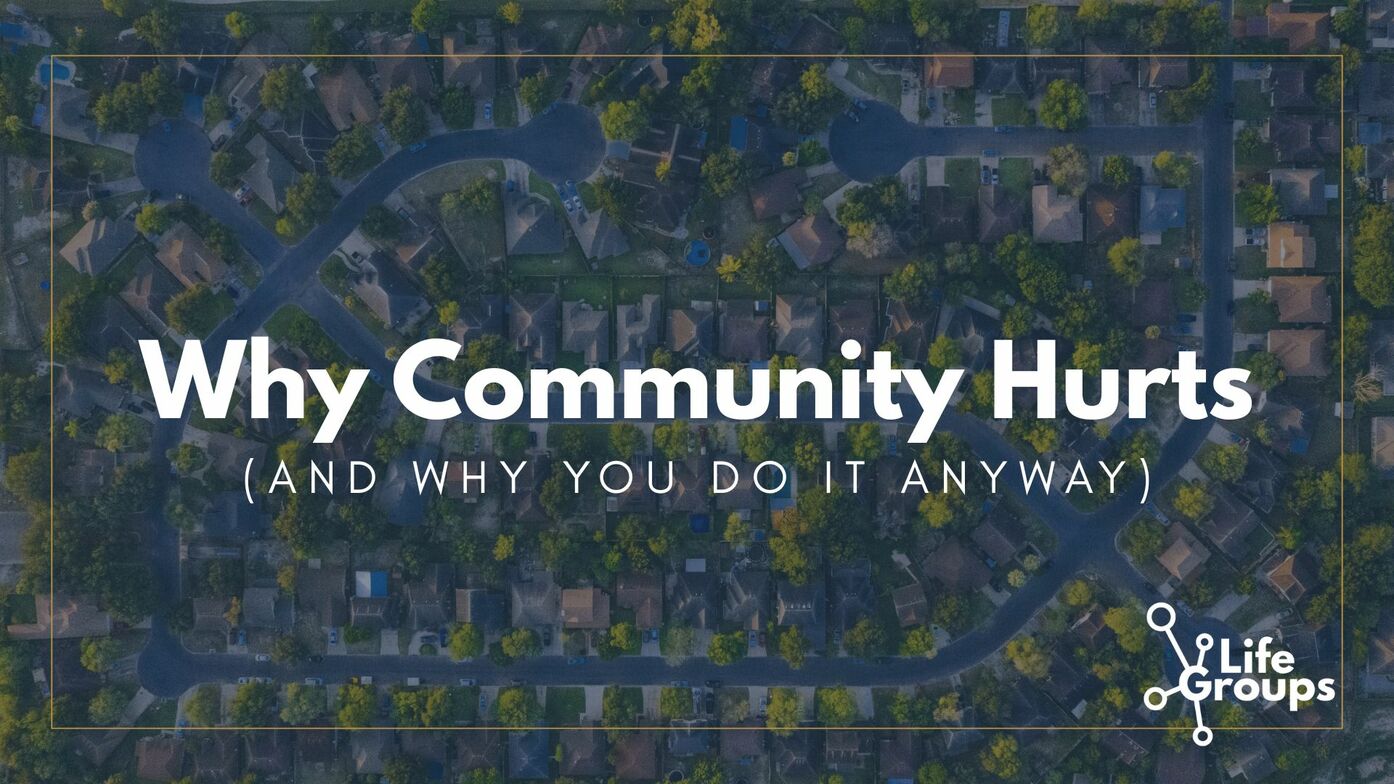
Community is life-giving. The laughter that echoes around the dinner table. The texts that check in after a long day. The surprise meal dropped off when you’re sick.
Community is painful. The careless comment that stings and lingers. Feeling left out of an inside joke or an invitation. Expectations unmet because no one knew you had them.
Community is both life-giving and painful. And that’s why it’s so important. We long for it to be perfect. I’ll admit, I am an idealist. This is especially true for an inner longing for the ideal community. But that longing for the ideal can leave me feeling disappointed at times.
Ronald Rolheiser states:
“Everywhere, it seems, people are looking for community and complaining that their families, churches, and workplaces are disappointing them. … Why is that? Why, when we so desperately want community, do we find it so hard to achieve and sustain?”
He’s right. Studies back this up. In 2018, a study said that almost half of Americans say they at least sometimes feel lonely - and that was before COVID. “Not feeling lonely” is not the ideal state of community. It should be the minimum standard.
The church should be a place where you experience the joy and healing of community, but still, many in the church - many in our church - feel this way.
Community is built in the fire. In the same article as the quote earlier, Ronald Rolheiser states, “Community means staying together even when we don’t like each other, aren’t attracted to each other, and struggle with hopeless differences.”
Some pictures of tight-knit community are those who have gone through struggles together: soldiers in battle, athletes in a playoff run, or mothers sharing the trials of parenting. These proups grow closer through shared struggles.
But why isn’t the church seen this way? Jesus called us to carry our cross as we face a world that is opposed to the gospel.
One reason is that too often we give up before we reach that stage. Community is hard. We are called to carry each other's burden (Gal. 6:2). Carrying burdens isn’t fun. Anyone in close relationships can recall moments when it felt heavy.
And don’t we have enough burdens to carry on our own? Yes. That is why we need community with others. The biggest burden isn’t outside us.
The truth is, your biggest burden is yourself. And that’s true for every one of us. We all carry weaknesses, fears, guilt, and shame. But God designed community as one of the main ways we find healing.
Thankfully, through his death on the cross, God’s love can heal. I believe that the most common way God expresses his love is through community. We need others to stare at our open soul as we share our weakness, guilt, shame, and fear and to be responded to with love and forgiveness. That is how we not only bear our burdens, but lay them down.
This takes being vulnerable. Because too often people quit community when it starts to get real. When it starts to show our flaws. When it bumps up against our preferences. I believe many people have quit being in community right before their watershed moment of healing and restoration. Like a caterpillar needs to turn into a vulnerable soupy mess before it becomes a butterfly. Many people have avoided this stage in community, just before they can find healing. That kind of transformation doesn’t happen overnight.
This takes time. It takes courageous vulnerability to open ourselves more and more to others so we can be met with love and healing.
Here are 4 practical ways you can invest in community this year:
-
Prioritize your group. Don’t let other things crowd it out. Days will be busy, excuses will come—but make your group a non-negotiable. If you’re not in a group, ask yourself: Who’s helping me follow Jesus right now? If the answer is “no one,” it’s time to take a step.
-
Invest outside of group time. Life groups aren’t just a weekly meeting. Send a text, share a meal, pray for someone by name. Small things often carry the biggest weight.
-
Create an Environment of Love. Model vulnerability, and when others open up, respond with presence instead of quick fixes. People rarely need advice, but they always need love and support.
-
Don’t quit when it’s hard. This is where real community forms. Lean in instead of walking away. Remember: God often does His deepest work through the struggles, not around them.
Community is both life-giving and painful, but God uses both to bring healing so he can shape us into people of love that is irresistible to the world around.

